Top eight political moments of 2018
December 27, 2018
Another year of political controversy and convention-breaking, 2018 saw historic losses for Republicans in the midterm elections, offset by the passage and implementation of many of Trump’s most controversial policies. On the world stage, the Trump administration drew criticism from foreign policy experts and the media for abandoning traditional allies and engaging in high-risk diplomacy but also renegotiated trade deals to support American industries. While the future of American democracy remains uncertain, 2018 has cemented Trump’s brazenly unapologetic brand of populism as a new norm in American politics. The following eight events encapsulate this trend, both at home and abroad.
- April: The Family Separation Policy

From April to June, the Trump administration enacted a policy of family-separation at the U.S.-Mexico border. As part of the administration’s “zero-tolerance” stance on immigration, authorities separated children from the parents and relatives who accompanied them crossing the border. After political pressure from human rights and medical groups, and approval of the policy sinking to 25%, family separation was suspended by executive order. However, by August, a fifth of the children initially separated had not yet been reunited with their parents.
- June: The G6 + 1 Conference
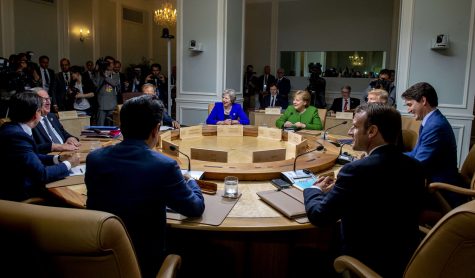
In June, Trump met with the heads of state of several of America’s closest allies in Quebec to discuss trade relations, gender equality, and climate change among other topics. While the Conference began on an optimistic note, it eventually descended into chaos, with Trump hurling insults at the French and Canadian Presidents and threatening to “send 25 million ethnic Mexicans to Japan.” French Government officials eventually began to label the Conference “G6 + 1,” in part due to America’s withdrawal from the Paris Agreement and Iran Deal. The summit marks a paradigm shift in American foreign policy- an abandonment of traditional allies in favor of authoritarian regimes, and a return to the isolationist policies that dominated throughout much of the early 20th century.
- September-October: Kavanaugh is Confirmed
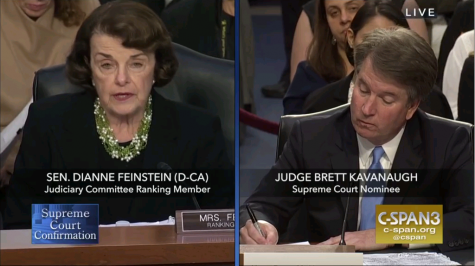
During the confirmation process, Judge Brett Kavanaugh, Donald Trump’s pick to fill a Supreme Court vacancy left by Anthony Kennedy, was accused by Dr. Christine Blasey Ford of sexually assaulting her while they were both in high school. At the height of the #MeToo movement, Ford’s allegations catapulted Kavanaugh’s past into the national spotlight, culminating in Senate hearings, emotional testimonies, and an FBI investigation. The incident drew comparisons to Anita Hill’s accusations during Justice Clarence Thomas’s confirmation hearings in 1991, and sparked debate about the burden of proof in sexual assault cases, and power dynamics in D.C. While Kavanaugh was confirmed on a nearly party line vote, several at-risk Democrats including Claire McCaskill and Heidi Heitkamp- both of whom would go on to lose their Senate seats in November- voted against him.
- October: Trump Signs New Trade Deal
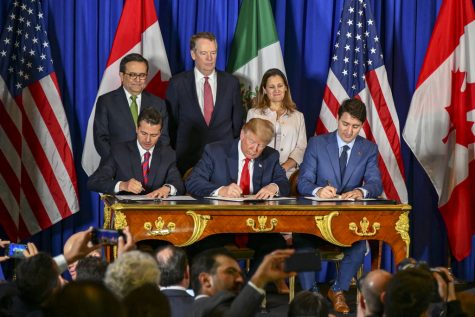
In October, Donald Trump announced the end of the North American Free Trade Agreement, a partnership between the U.S., Mexico, and Canada to eliminate tariffs and encourage economic activity between the countries. After meeting with representatives from Canada and Mexico, Trump announced his replacement: the United States-Mexico-Canada Agreement. While the USMCA has been criticized as “NAFTA 2.0”, the Agreement expands economic benefits to the American automotive and dairy industries, and strengthens patent law. Trump now argues that the money saved from the USMCA can be put towards the border wall- in effect, making Mexico pay for it.
- October-November: The Migrant Caravan

In late-October, 5,000 migrants from Honduras, Guatemala, Nicaragua, and El Salvador fleeing violence and economic disparity crossed the border into Mexico in an attempt to gain entry into the United States. A week before the midterm elections in the United States, President Trump deployed 5,200 active duty soldier to the U.S.-Mexico border in response to the large number of migrants gathering near border crossings and checkpoints near San Diego. As in Europe, immigration has long been one of the most divisive and polarizing issues in American politics. However the migrant caravan, and the accompanying humanitarian and political crisis, has brought unparalleled urgency to the policy debate.
- November: The Midterm Elections

In an election widely considered to be a referendum on President Trump, Democrats gained an unprecedented 40 seats in the House, and won the popular vote by the largest margin since the Watergate scandal. Democrats also took back several key governorships in rust belt states- which they must hold to stand any chance at defeating Trump in 2020. While Democrats argued that the elections served as a rebuke of Trump’s agenda, several progressive darlings- including Andrew Gillum in Florida and Beto O’rourke in Texas- narrowly lost their races, leaving the party with a noticeable leadership gap. Nevertheless, the midterms have ushered in a power shift that will dramatically alter the remaining two years of Trump’s first term.
- November: Michael Cohen Pleads Guilty
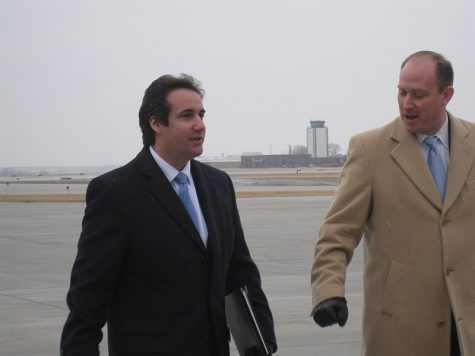
On November 29, Michael Cohen, Donald Trump’s personal lawyer from 2006 to 2018, pleaded guilty to lying to Congress in relation to the Russia inquiry. Cohen originally told members of the House and Senate Intelligence Committees that the proposed “Trump Tower Moscow deal” ceased in January of 2016, despite it actually continuing well into June. Cohen’s admissions mark major step forward for the Mueller investigation into Russian interference in the 2016 election, and heavily implicate Trump in a campaign finance felony intended to cover up his affairs.
1. December: John Kelly Exits
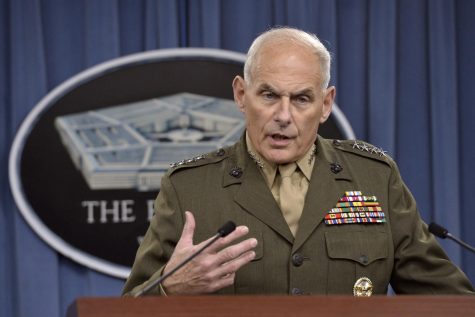
John Kelly, who has long been hailed as a potentially stabilizing presence amidst the chaos of the Trump administration, will step down as White House Chief of Staff. Many names were floated as potential replacements, but Mick Mulvaney, Trump’s Director of the Office of Budget Management, will assume the role beginning in 2019. Kelly’s departure from one of the most important jobs within the executive branch signifies further uncertainty for an administration embroiled in controversy and in-fighting. The question remains whether Mulvaney will be able to overcome the challenges Kelly faced- but the prognosis is poor.









Daniel A Martinez • Jan 8, 2019 at 7:35 PM
Yeah most of this stuff is very bias against the republican party, also the republican party won the majority of the midterm election and kept most of their seats setting record even president Obama wasn’t able to keep his party in power during the midterms. And most media outlets made it sound like a shoutout although it was closer than last midterms in 2014 and republicans still retained the senate.